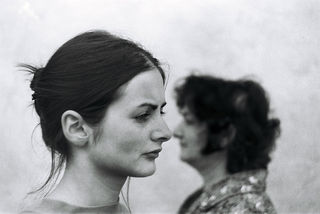Anxiety
A Meditation Practice for Performance Anxiety
Using loving-kindness meditation can help with issues of performance anxiety.
Posted May 11, 2020

There are many paths that one can take in dealing with the emotional experience of anxiousness and panic when performing for others. It has been my experience that panic, fear, and anxiety are phenomena that manifest not as a natural reaction to a situation (as the narrow fight-or-flight model suggests), but rather as a deeply embedded emotional reaction that is based on certain habitual ways of being with ourselves and with others. In this model, we pause, cultivate, and choose our actions, rather than being reactive beings mechanically controlled by circumstances. At the core of this anxiety-causing interpretation of others is judgment.
To understand performance situations in which anxiety inhibits our ability to make and share music with others, we begin with an observation of our habitual attitudes toward judging ourselves and others. Becoming aware of our habitual tendency toward judgment and replacing it with an attitude of observation is the first step in dissolving our performance anxiety. Cultivating compassion and gentleness for ourselves and others is the second.
Replacing judgment of ourselves and others with observation is the beginning of a shift in how we choose to be in the world. After a period of meditative practice in the cessation of judgment, we can further develop what is known as loving-kindness towards ourselves and others. In the Buddhist tradition, this "loving-kindness" practice is called Metta Bhavana meditation. I offer a version of this meditation that is adapted for those who experience debilitating anxiety when playing for others.
This practice progresses through five stages in which we develop compassion for ourselves, someone dear to us, a stranger, someone we dislike intensely, and finally, all four of these people together. This process of generating nonjudgmental gentleness towards ourselves and others has been effective in enhancing our ability to share music with others as well as to experience that process in a way unobstructed by self-consciousness (ego preoccupation) and the distractions of judgment.
To begin this practice, we sit quietly and cultivate a sense of acceptance, warmth, and gentleness towards ourselves. Through this stage, we accept our imperfections and observe, rather than judge the qualities of ourselves which we feel negatively towards. We understand our imperfections as qualities which, either permanent or temporary, are essential aspects of who we are. When we stop judging and simply observe, we often find that this complex of strengths and weaknesses are the very grains that comprise our uniqueness in expression.
Rather than judging one's weaknesses and strengths, observe and accept that these qualities converge and produce the unique experience that only we ourselves can produce. In this stage, we not only forgive ourselves for our imperfections, but we also come to understand them as an essential element of our unique voice. Think or say to yourself, “I accept, appreciate, and embrace …” whatever quality it is that you understand as a liability. "I accept, appreciate, and embrace that my tone is not always perfect" is an example of this. Consider the aspects of your playing that you feel negatively towards and repeat this with all of those judgments. Through this, we generate compassion for ourselves and transform our experience or our flaws into precious jewels.
In the second step, we sit quietly and visualize making music for someone we dearly love. We experience ourselves sharing the musical experience with someone with whom we feel naturally safe and at ease. We generate loving-kindness through our music with and for this person who is precious to us. We come to understand through this practice the true gift of making and sharing with others, one that is absent of self-conscious preoccupation with self.
The third step is marked by sharing our music with someone towards whom we have no positive nor negative feelings. This is sharing and generating the golden experience we share with someone dear to us with a complete stranger. Some find that actually playing in a public space, for strangers to come and go at their will, enhances this meditative practice of loving-kindness.
The fourth step requires us to identify and visualize the people for whom we feel anger, resentment, intimidation, jealousy, and fear. These are often people from our past who were judgmental towards us or whose strengths brought light to our inadequacies. A teacher whose intention was not correct, a fellow musician who is influenced by jealousy or resentment, someone who deals with their fears by destroying or dominating others, a harsh or judgmental parent who projected their feelings of failure onto us as children.
This is a difficult step, and it often takes the most investment of time and consideration. We visualize ourselves offering and sharing our music with that person whom we feel negatively towards. We allow ourselves to be vulnerable and cultivate a desire to share and let the other experience our art on their own terms, in their own way. We come to cultivate compassion towards their suffering due to their judgment of themselves and others.
Finally, we can visualize ourselves performing our music with an audience. This audience includes those we love dearly, strangers, those we have felt animosity with, and ourselves. This loving-kindness meditation is a powerful tool for transforming and clarifying our relationships with others as well as with ourselves, and it helps us to generate a more sensitive and compassionate performance while sharing with and for others.




